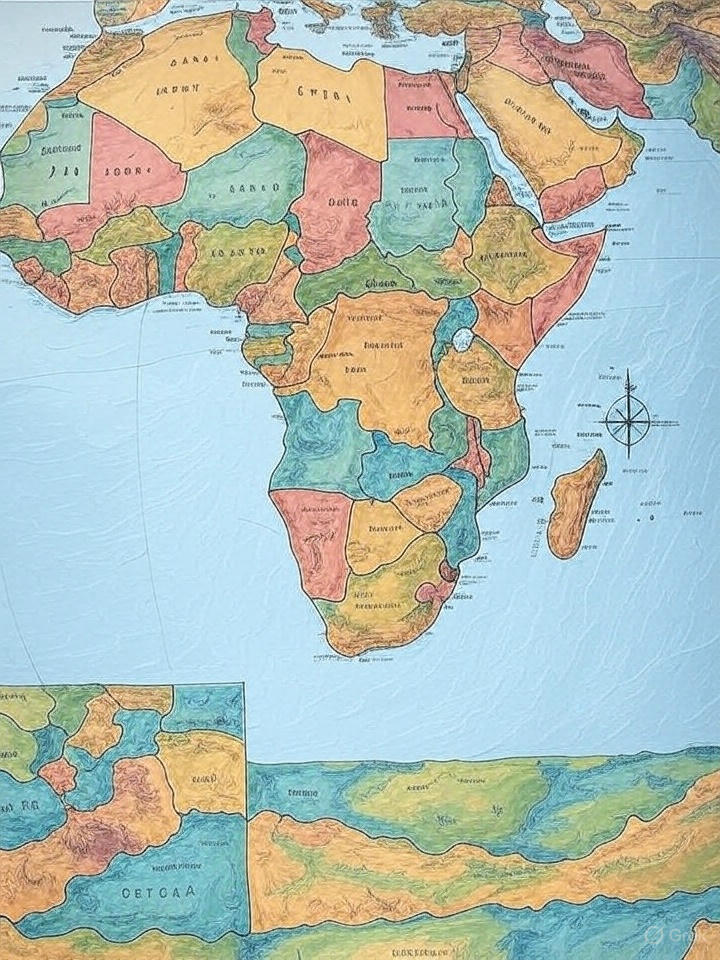
Africa’s Football Giants
Africa’s football stadiums are more than concrete and steel—they are living symbols of national pride, passion, and history. From hosting Africa Cup of Nations finals to thrilling local derbies, these arenas ignite the spirit of millions. Ranked by seating capacity and enriched with culture, architecture, and legacy, here are 100Africa.com’s Top 10 Largest Football Stadiums in Africa for 2025.
The Top 10 Largest Football Stadiums in Africa
1. FNB Stadium — Johannesburg, South Africa
- Capacity: 94,736
- Why It’s Great: A global football landmark with unmatched legacy.
- Highlights: Iconic “Calabash” design. Hosted 2010 FIFA World Cup Final. Historic speeches by Nelson Mandela. Legendary Soweto Derby.
2. Misr Stadium — New Administrative Capital, Egypt
- Capacity: 93,940
- Why It’s Great: A futuristic colossus ready for global tournaments.
- Highlights: Opened 2024. Olympic City centerpiece. Cutting-edge tech and massive crowd potential.
3. Borg El Arab Stadium — Alexandria, Egypt
- Capacity: 86,000
- Why It’s Great: A modern fortress for Egyptian football.
- Highlights: Premier venue for AFCON qualifiers. Sleek, coastal design with excellent fan engagement.
4. Stade des Martyrs — Kinshasa, DR Congo
- Capacity: 80,000
- Why It’s Great: A symbol of scale—haunted by safety lapses.
- Highlights: Historic venue with ongoing renovation. Needs critical safety improvements to shine again.
5. Cairo International Stadium — Cairo, Egypt
- Capacity: 75,000
- Why It’s Great: A timeless icon of African football.
- Highlights: Hosts Al Ahly, Zamalek, and Egyptian national team. Site of multiple AFCON finals.
6. Ibn Batouta Stadium — Tangier, Morocco
- Capacity: ~68,000
- Why It’s Great: Sleek, modern, and built for world-class action.
- Highlights: Hosted FIFA Club World Cup and Spanish Super Cup. Praised for excellent facilities.
7. Stade du 5 Juillet 1962 — Algiers, Algeria
- Capacity: 64,200
- Why It’s Great: A storied venue with modern ambitions.
- Highlights: Hosted 1990 AFCON Final. Continuous upgrades. National pride centerpiece.
8. Ellis Park Stadium — Johannesburg, South Africa
- Capacity: 62,567
- Why It’s Great: Historic and versatile—but second-tier for football.
- Highlights: 2010 World Cup host. Known for rugby. Modernized but still needs upgrades.
9. Moshood Abiola National Stadium — Abuja, Nigeria
- Capacity: 60,491
- Why It’s Great: Nigeria’s national stage with a fresh vision.
- Highlights: Set for a 2025 upgrade. Premier Super Eagles venue. Built for All-Africa Games.
10. Alassane Ouattara Stadium — Abidjan, Ivory Coast
- Capacity: 60,000
- Why It’s Great: A West African masterpiece of sustainability and style.
- Highlights: Eco-friendly, futuristic venue. Hosted 2023 AFCON Final. Regional benchmark.
Africa’s Stadium Legacy
These stadiums are more than sports venues—they are cathedrals of unity, ambition, and heritage. From historic hosts like Cairo International to rising stars like Misr and Ibn Batouta, Africa’s football infrastructure is reaching world-class heights. As the continent eyes the 2030 FIFA World Cup and beyond, these giants will be at the heart of Africa’s sporting future.
